As the sun sets over the azure waters of Timor-Leste outside my window, I sit at my desk, refreshing the online spreadsheet in front of me. Several more rows of data appear at the bottom of the page. My eyes skim over the names of fishers from Atauro Island, followed by the number of fish they have caught, how and where they caught them, and a variety of other fisheries data.
These data were collected by the Community-based Fisheries Monitoring (CFM) group from an aldeia [sub-village] called Ilik-namu on Atauro Island. This all-female group came into existence in March and, despite the short length of time, they have been going from strength to strength. I didn’t expect to see so much data appearing on our database so soon, but these women have surprised me from the start.
Blue Ventures has been working on Atauro since 2016, and the participatory monitoring and data sharing we’ve done with the communities has helped build bonds of friendship and trust. In 2017 the community of Ilik-namu invited Blue Ventures to support them in establishing a locally managed marine protected area, using customary laws called Tara Bandu.
This process revealed the need for fisheries data because, like for the majority of small-scale fisheries around the world, there is hardly any data available to help the community make management decisions. Another thing that stood out was that the management consultations regarding the Tara Bandu process were dominated by male community leaders. This means that the views of half the community are not being represented in the decision-making process, and it has been shown that the exclusion of women from natural resource management often leads to less sustainable and less equitable resource use.
As a response to these discoveries, we decided to try and kill two birds with one stone by starting a project that collects useful and robust fisheries data whilst also empowering women in the community.
The Tara Bandu process is dominated by male leaders, but collecting fisheries data will empower women with a stronger voice in marine management discussions.
The Blue Ventures team started this project by accumulating information from the fishers in Ilik-namu (using a handy smartphone app called Open Data Kit) and developing a questionnaire about local fisheries. Once the questionnaire was ready to go, it was time to gather a group of women who would be interested in learning how to conduct the necessary data collection interviews.
I put the word out on the island grapevine that I was looking for six women to come along to an introductory information session, where I planned to outline the project plan and ask if they would like to sign up to the training. I’d asked for six women because I ideally wanted at least four, and I wasn’t sure whether interest would decrease once they found out more about the project and the amount of time I’d be asking them to put in…
I needn’t have worried though, eight women came along to the introductory session and listened intently as I explained what the goals of the project were, what they would be doing and how this work might benefit their community. By collecting fisheries data, they will be able to track fish stock health, and monitor and evaluate the Tara Bandu management once it has been implemented. I also asked the women what had motivated them to attend the session, and they all said that they were looking for opportunities to learn new skills and learn more about their marine resources.
This meeting fortuitously coincided with International Women’s Day, so we also discussed how collecting fisheries data would empower them to have a stronger voice in Tara Bandu consultations and in local marine resource management generally, since women are traditionally marginalised in Timorese society and often overlooked in community politics.
As the session drew to a close I asked who would like to sign up to continue the training, and to my delight everyone said they were ready to continue – twice the number of members I’d expected! Then, when I asked them whether they would be available to do another session the following week, I was pleasantly surprised again because they asked if we could do three sessions instead!
The subsequent training sessions covered a huge variety of content: everything from using a smartphone, to dealing with conflict in the field and photographing fish correctly. The participants threw themselves into each exercise with enthusiasm, particularly the role-play exercises where they took turns as fishers and interviewers. By the time the training programme was finished they were a force to be reckoned with, and I was looking forward to seeing how the real data collection would go.
After organising a survey schedule and overcoming any last nerves, the women split into teams of two to conduct interviews on the beach, before meeting again after a few days to discuss everyone’s first surveys. I was thrilled to learn at this meeting that everything had gone according to plan. The women in the CFM group were now successful fisheries data collectors!

The CFM group | Photo: Jenny House
It has now been several months since the CFM group completed their training and started collecting data. It’s been going very well, in fact, the team even decided to double their survey shifts to collect extra data! They were keen to ensure that the data represents the fishers’ activities as accurately as possible so that it’s more useful for making management decisions.
After collaboratively making improvements to the methodology during this “pilot phase” of the project, a second group of women has now completed their training. The women in this new group are from Behau on the mainland of Timor-Leste, and are also from a community which is interested in developing a Tara Bandu.
On the 10th of August, I was pleased to facilitate an exchange where the Atauro group visited their new teammates in Behau. It was great for everyone to finally meet and support each other. The exchange included games and activities aimed at improving communication skills and community understanding of marine conservation, and there were also discussions on important topics like the seasonal nature of fisheries, strategies for dealing with community conflict, and designing a logo for some team t-shirts!
During a particular discussion about no-take zones in Tara Bandu, I was reminded of the start of the project when I’d asked the Atauro group about their views on Tara Bandu and they’d replied with a vague “some people want Tara Bandu and some people don’t”. When I asked the women the same question again, I got a much more assertive response:
Some of the older generation don’t want a Tara Bandu because they are just thinking about today, but we want Tara Bandu because we are looking towards the future.”
By the end of the exchange, we had gone from two separate groups to a solid team of women who are ready to show the world what they can achieve when they set their minds to it.
Watch Jenny’s TEDxDili talk: Small island, big picture
Join Blue Ventures in Timor-Leste as a marine conservation volunteer!
Blue Ventures would like to thank our supporters and funders including the Darwin Initiative through UK Government funding.
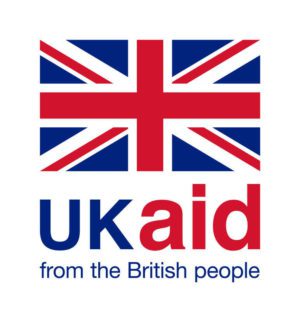
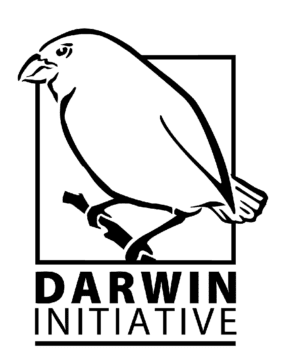


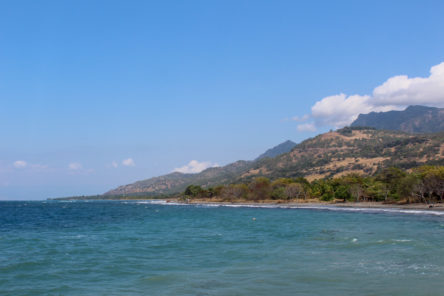
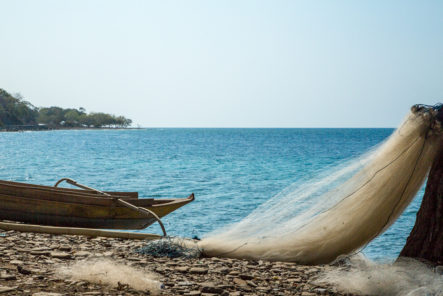
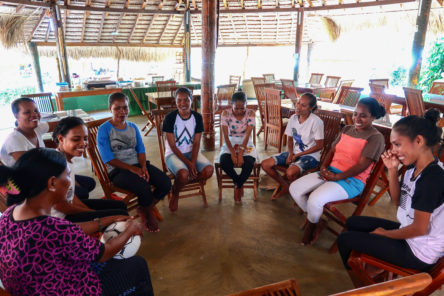
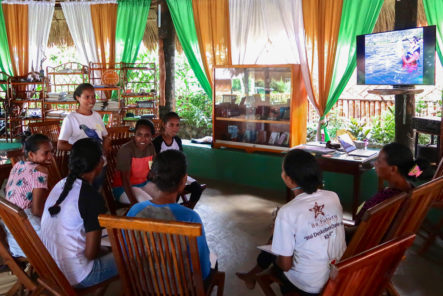
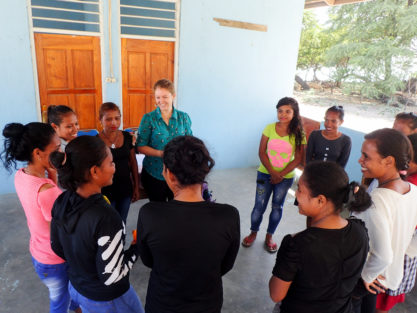
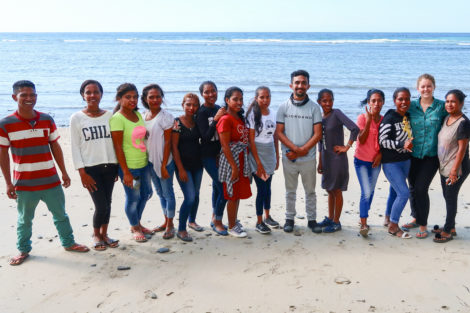
Excellent summary, and congratulations on the work!